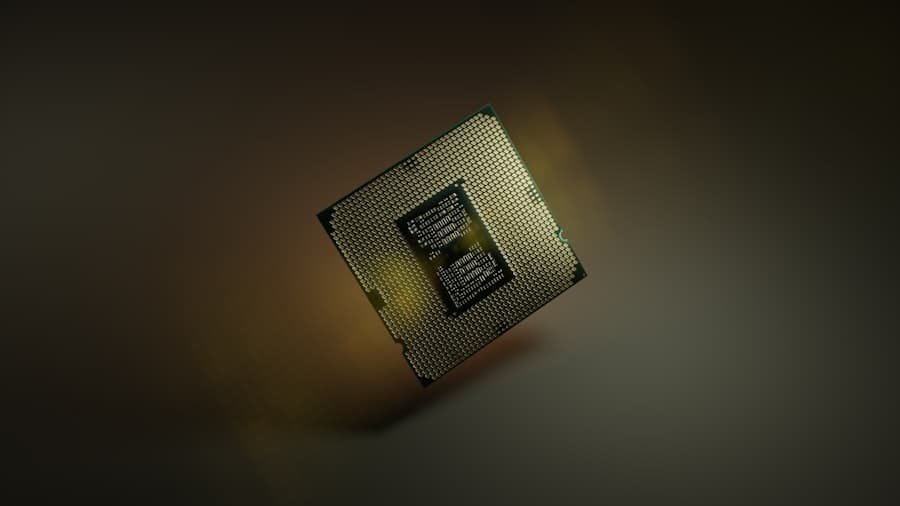Quantum computing represents a paradigm shift in the realm of computation, harnessing the principles of quantum mechanics to process information in fundamentally different ways compared to classical computers. At the heart of quantum computing lies the qubit, or quantum bit, which can exist in multiple states simultaneously due to the phenomenon known as superposition. This capability allows quantum computers to perform complex calculations at speeds unattainable by classical systems.
For instance, while a classical computer might take years to factorise a large number, a quantum computer could potentially achieve this in mere seconds, thanks to its ability to explore multiple solutions concurrently. The implications of quantum computing extend far beyond mere speed. They encompass a wide array of applications, from cryptography and drug discovery to optimisation problems and artificial intelligence.
As industries begin to recognise the transformative potential of quantum technologies, significant investments are being made in research and development. Governments and private enterprises alike are racing to build practical quantum systems that can solve real-world problems, marking a new era in computational capabilities. However, the journey towards fully functional quantum computers is fraught with challenges that must be addressed before their widespread adoption can occur.
Summary
- Quantum computing harnesses the principles of quantum mechanics to process information in a fundamentally different way from classical computing.
- Challenges in scaling quantum computing systems include maintaining the delicate quantum state, minimizing errors, and increasing the number of qubits.
- Quantum computing hardware limitations include the need for extremely low temperatures and precise control of quantum states, as well as the difficulty in scaling up the number of qubits.
- Quantum error correction is essential for mitigating the impact of errors in quantum computing systems, which are more prone to errors than classical systems.
- Quantum software and algorithms are being developed to exploit the unique capabilities of quantum computing, such as solving complex problems more efficiently than classical algorithms.
Challenges in Scaling Quantum Computing Systems
One of the most pressing challenges in the field of quantum computing is the scalability of quantum systems. As researchers strive to increase the number of qubits in a quantum computer, they encounter a myriad of technical hurdles that complicate the scaling process. The delicate nature of qubits makes them susceptible to environmental noise and interference, which can lead to decoherence—a phenomenon where qubits lose their quantum state and thus their computational power.
This fragility necessitates sophisticated error correction techniques and robust isolation methods, both of which become increasingly complex as the number of qubits grows. Moreover, the physical architecture of quantum computers presents additional scaling challenges. Current quantum systems often rely on specific technologies, such as superconducting circuits or trapped ions, each with its own limitations regarding qubit connectivity and operational fidelity.
For instance, superconducting qubits require extremely low temperatures to function effectively, which complicates the integration of larger systems. As researchers attempt to scale up these systems, they must also consider how to maintain coherence across a larger number of qubits while ensuring that they can interact efficiently with one another. This intricate balancing act poses significant engineering challenges that must be overcome for practical quantum computing to become a reality.
Quantum Computing Hardware Limitations

The hardware limitations of quantum computing are multifaceted and deeply intertwined with the fundamental principles of quantum mechanics. One major limitation is the coherence time of qubits, which refers to the duration over which a qubit can maintain its quantum state before succumbing to decoherence. Different types of qubits exhibit varying coherence times; for example, superconducting qubits typically have coherence times on the order of microseconds, while trapped ion qubits can maintain coherence for seconds or even longer.
This disparity presents a challenge when designing quantum algorithms that require multiple operations to be performed sequentially within a limited timeframe. Additionally, the physical implementation of qubits introduces challenges related to error rates and gate fidelity. Quantum gates, which are the building blocks of quantum circuits, must operate with high precision to ensure accurate computations.
However, current technologies often suffer from significant error rates due to imperfections in control signals and environmental disturbances. For instance, in superconducting qubit systems, gate errors can arise from fluctuations in microwave pulses used for qubit manipulation. As the number of qubits increases, so too does the complexity of maintaining low error rates across all operations, necessitating advanced techniques for error mitigation and correction.
Quantum Error Correction
Quantum error correction (QEC) is an essential component in addressing the limitations posed by noise and decoherence in quantum computing systems. Unlike classical error correction methods, which can simply duplicate information to safeguard against errors, QEC must leverage the unique properties of quantum mechanics to protect qubit states without directly measuring them—an act that would collapse their superposition. The most well-known QEC code is the Shor code, which encodes a single logical qubit into multiple physical qubits, allowing for the detection and correction of errors without losing the encoded information.
Implementing effective QEC schemes is crucial for achieving fault-tolerant quantum computation. However, these schemes introduce their own complexities and overheads. For instance, the overhead associated with encoding logical qubits into physical qubits can significantly increase the number of qubits required for practical computations.
Moreover, QEC protocols often necessitate additional operations for syndrome measurement and correction, further complicating circuit design and execution times. As researchers continue to develop more efficient QEC methods, they must balance the trade-offs between resource requirements and error correction capabilities.
Quantum Software and Algorithms
The development of software and algorithms tailored for quantum computing is as critical as advancements in hardware. Quantum algorithms exploit the unique properties of quantum mechanics to solve problems more efficiently than classical algorithms can. Notable examples include Shor’s algorithm for integer factorisation and Grover’s algorithm for unstructured search problems.
These algorithms demonstrate how quantum computing can revolutionise fields such as cryptography and database searching by providing exponential speedups over classical counterparts. However, creating effective quantum algorithms requires a deep understanding of both quantum mechanics and computational theory. Researchers are actively exploring new algorithmic paradigms that can leverage the strengths of quantum systems while mitigating their weaknesses.
For instance, variational algorithms have gained traction as they combine classical optimisation techniques with quantum computations, allowing for near-term applications on noisy intermediate-scale quantum (NISQ) devices. These hybrid approaches hold promise for practical applications in areas such as material science and machine learning but also highlight the need for continued innovation in algorithm design.
Overcoming Quantum Computing System Scalability Issues

Addressing scalability issues in quantum computing systems necessitates a multifaceted approach that encompasses advancements in hardware design, error correction techniques, and algorithm development. One promising avenue is the exploration of new qubit technologies that offer improved coherence times and gate fidelities while being easier to scale. For example, topological qubits are an emerging class of qubits that are theorised to be more robust against decoherence due to their topological nature.
If realised successfully, these qubits could significantly enhance the scalability prospects of quantum systems. In addition to hardware innovations, researchers are investigating novel architectures that facilitate better connectivity between qubits while minimising noise interference. For instance, modular quantum computing architectures allow for smaller clusters of qubits to be interconnected dynamically, enabling larger-scale computations without overwhelming individual components with noise.
Furthermore, advancements in QEC techniques will play a pivotal role in ensuring that as systems scale up, they remain resilient against errors that could compromise computational integrity.
Future Prospects for Quantum Computing
The future prospects for quantum computing are both exciting and uncertain, as researchers continue to push the boundaries of what is possible within this nascent field. As advancements in hardware and software converge, we may witness breakthroughs that unlock new applications across various sectors. Industries such as pharmaceuticals could benefit from accelerated drug discovery processes through simulations that model molecular interactions at unprecedented scales.
Similarly, financial institutions may leverage quantum algorithms for optimising portfolios or managing risk more effectively than ever before. Moreover, as governments and private entities invest heavily in quantum research initiatives, we can expect an influx of talent and resources dedicated to overcoming existing challenges. Collaborative efforts between academia and industry will likely yield innovative solutions that propel the field forward at an accelerated pace.
However, ethical considerations surrounding quantum technologies must also be addressed; as capabilities grow, so too does the potential for misuse in areas such as cryptography or surveillance.
Conclusion and Recommendations for Scaling Quantum Computing Systems
In conclusion, scaling quantum computing systems presents a complex array of challenges that require concerted efforts across multiple domains. To navigate these hurdles effectively, it is essential for researchers and engineers to adopt an interdisciplinary approach that integrates insights from physics, computer science, and engineering disciplines. Continued investment in diverse qubit technologies will be crucial for identifying solutions that enhance coherence times and reduce error rates.
Furthermore, fostering collaboration between academia and industry will facilitate knowledge transfer and accelerate innovation in both hardware and software development. As we stand on the brink of a new era in computation, it is imperative that stakeholders remain vigilant about ethical implications while striving towards practical implementations of quantum technologies that can benefit society at large. By addressing these challenges head-on and embracing a collaborative spirit, we can unlock the full potential of quantum computing and usher in transformative advancements across various fields.
In a recent interview with Samuel Leach, the chairman of Logiqs, the discussion revolved around stock market success and the strategies employed to achieve it. Leach shared valuable insights on how to navigate the complexities of the stock market and make informed decisions to maximise profits. This article provides a fascinating look into the world of finance and offers valuable lessons that can be applied to various business sectors, including quantum computing. To read more about Samuel Leach’s interview, click here.
FAQs
What are the challenges in scaling quantum computing systems?
Quantum computing systems face challenges in maintaining the coherence of qubits, error correction, and the development of scalable hardware and software.
How can the coherence of qubits be maintained in quantum computing systems?
Maintaining the coherence of qubits in quantum computing systems requires minimizing environmental noise and implementing error correction techniques such as quantum error correction codes.
What is the role of error correction in scaling quantum computing systems?
Error correction is crucial in scaling quantum computing systems as it helps mitigate the impact of noise and errors on qubits, ensuring the reliability of quantum computations.
What efforts are being made to develop scalable hardware for quantum computing systems?
Researchers and industry experts are working on developing scalable hardware for quantum computing systems, including the design and fabrication of qubits with longer coherence times and the development of scalable architectures.
How is software being developed to support the scaling of quantum computing systems?
Efforts are underway to develop software for quantum computing systems that can efficiently handle larger numbers of qubits, optimize quantum algorithms, and facilitate the integration of quantum and classical computing.
